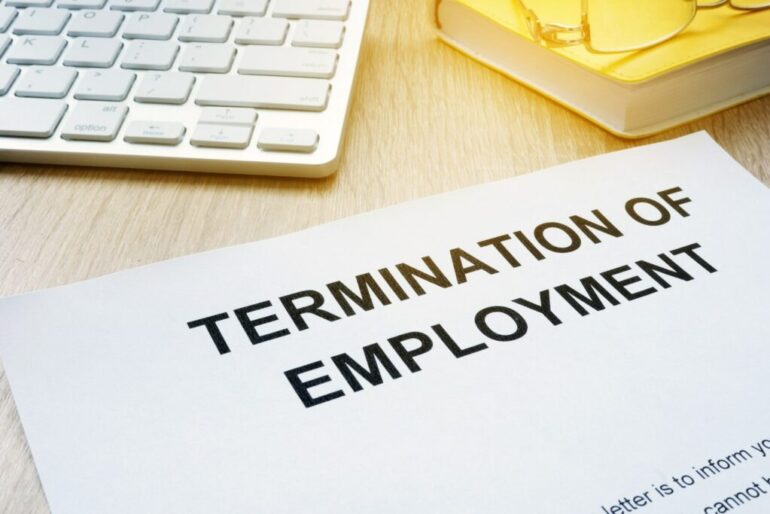TL;DR:
- Tech companies’ HR departments are utilizing ChatGPT, an AI-powered chatbot, to draft termination letters and improve workplace productivity.
- ChatGPT offers significant time savings, with HR reps saving an average of 70 minutes per week.
- The adoption of AI in HR extends beyond terminations, encompassing training and development, employee surveys, and performance reviews.
- The tech industry faces a wave of layoffs, with Meta, Community Gaming, Nansen Research, and Binance among the companies affected.
- The rise of generative AI attracts venture capitalists’ attention and steers focus toward artificial intelligence initiatives.
- HR professionals are leveraging AI to navigate the challenges of workforce management, fostering efficiency and a well-managed work environment.
Main AI News:
In an era plagued by layoffs, the tech industry has witnessed a unique adoption of artificial intelligence (AI) in its human resources (HR) departments. According to a recent report by B2B Reviews, tech companies are leveraging ChatGPT, an advanced chatbot, to draft termination letters with remarkable efficiency and precision.
Surprisingly, the report reveals that over 10% of HR professionals have utilized this AI-powered tool to craft employee terminations. Although the concept of relying on a chatbot for such sensitive matters might raise eyebrows, the application of ChatGPT extends beyond terminations.
As highlighted in the report, HR employees have embraced ChatGPT to optimize workplace productivity, resulting in significant time savings. The chatbot’s deployment has proven invaluable in diverse HR functions, including training and development, employee surveys, and performance reviews.
Remarkably, ChatGPT has offered HR representatives an average weekly time savings of 70 minutes, effectively granting them an extra lunch break, as detailed by the B2B Review report. By streamlining routine tasks and enhancing workflow efficiency, this AI-driven solution has become a trusted companion for HR departments facing mounting responsibilities.
The report further reveals that 37% of surveyed HR professionals anticipated the need to initiate layoffs within the next three to six months. This unsettling trend has not spared the blockchain industry either, as the rise of generative AI has captured the attention of venture capitalists, shifting their focus towards artificial intelligence ventures.
One prominent example of this industry’s transformation is Meta, which underwent a significant workforce reduction of 10,000 employees in March after discontinuing support for non-fungible tokens (NFTs) on its Instagram platform. While Meta remains committed to its metaverse ambitions, the company has swiftly redirected its efforts toward the flourishing artificial intelligence sector.
The repercussions of the downturn in the competitive gaming industry were evident in April when Community Gaming, a Web3 startup, made the difficult decision to lay off 17 members of its workforce. The company attributed its struggles to the challenging landscape within the gaming industry. Similarly, in May, blockchain analytics firm Nansen Research announced a 30% staff reduction, citing adverse bear market conditions and the need to accommodate the rapid expansion of its Nansen team during the initial years of operation.
During the same month, Binance, the world’s largest cryptocurrency exchange, openly admitted to “reevaluating” its headcount, hinting at potential layoffs within the company. As the industry grapples with evolving market dynamics, businesses are compelled to reposition themselves strategically and adapt to the changing landscape.
Amidst these transformative times, HR departments are finding solace and support in the remarkable capabilities of AI. ChatGPT’s seamless integration into the HR workflow not only streamlines administrative tasks but also contributes to a more efficient, empathetic, and well-managed work environment.
Conclusion:
The integration of AI, exemplified by ChatGPT, into HR departments represents a significant leap forward in streamlining administrative processes and enhancing productivity. By utilizing AI-powered tools for tasks like drafting termination letters, training, and performance reviews, HR departments can achieve considerable time savings and allocate resources more effectively. The prevalence of layoffs in the tech industry underscores the need for efficient HR practices, and the adoption of AI assists in navigating this challenging landscape.
Furthermore, the growing interest of venture capitalists in AI ventures signifies the market’s recognition of the potential of generative AI technologies. As the symbiotic relationship between AI and HR professionals continues to evolve, the market can expect further advancements in the intersection of technology and human resources, ultimately driving increased productivity and efficiency.

